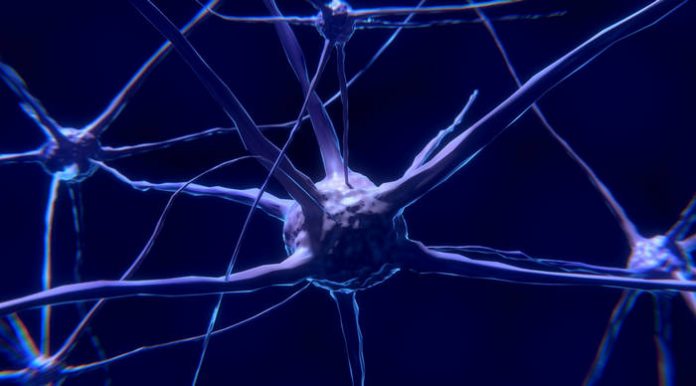There’s no doubt about it: gambling can be fun. Our brain enjoys the thrill of knowing that the next spin of the wheel, roll of dice or turn of cards can change your fortune, for better or worse. And it’s always left craving for more.
However, we are not the only ones. Biologists and behavioral scientists have invited our primate cousins to the gambling table and the results are intriguing. Just like humans, it seems they are prone to take chances in the hopes of a bigger reward. In the psychology of casino games, all you need is the right framing to make the offer appealing.
Deal in the apes
2013 and 2014 saw some interesting experiments. In two separate studies, scientists from Georgia State University and Duke University tested how the risk-taking preferences of humans and different primate species varied. In addition to the undergrad volunteers, a number of chimpanzees, capuchin monkeys and bonobos were studied during the gambling experiments.
In the Georgia State University study, chimpanzees, Capuchin monkeys and humans tried their luck in a modified version of the Iowa Gambling Task. Just like IGT, the Primate Gambling Task or PGT also simulates real-life decision making.
In the standard IGT test setting, human participants take cards from five different decks. In addition to different average payouts, some decks have a steady stream rewards; others have more variance including higher rewards but also a bigger chance of not winning anything. In PGT, the cards were replaced by stacked opaque food containers with treats inside.
The Duke University tests were a bit simpler. The researchers studied wild-born chimpanzees and bonobos to see if they could resist a certain instant reward and instead choose an option that could after a while bring them either bigger gains or nothing at all.
Worth the risk?
When looking at the results of the Georgia University experiments, most test subjects learned to favor a strategy of low variance and high payout. In other words, they were playing it safe. However, differences started to emerge when maximizing payout and minimizing variance were conflicting strategies.
The experiments showed that roughly half of the test subjects chased jackpots and opted for the riskier strategy when choosing the low variance option would produce smaller overall gains. In contrast, the other half was happy with the low variance even if it meant they might not get as many rewards as their risk-prone peers.
According to the 2013 data, the choices chimpanzees and Capuchin monkeys made are for the most part in line with those of their human counterparts. Most individuals identified and exploited strategies that they perceive as beneficial. However, these strategies are not uniform. Instead, they reflect the individual preferences in balancing risk avoidance and reward maximization.
More interestingly, the proportion of risk seeking and risk-avoiding subjects in different primate populations seems to be similar across species.
In the Duke University trials, the inter-species differences started emerging. According to their results, chimpanzees were more likely to take a gamble and choose the possibility of a jackpot over the certain reward. In contrast, the bonobos opted for the known alternative.
In our nature?
Especially the results of the Duke University experiments were surprising to the researchers. Since chimpanzees are more aggressive than the calmer bonobos, the scientists expected the chimps to go for the immediate reward and the bonobos having the stamina to wait for the grand prize. However, the test subjects were doing the exact opposite.
One of the explanations for this phenomenon comes from the natural habitat of the species. When it comes to food, bonobos live in a relative abundance compared to the chimpanzees. Because chimps have to seasonally adjust their hunting and gathering habits, their ability to wait for the right moment and take risks are constantly tested and rewarded by their environment.
This could partly explain why also humans are willing to take risks and gamble. If surviving in an unforgiving environment has conditioned our species to see risks worth taking, it’s not hard to see why the people living in comfort now seek the same gratification by gambling.
Brain rewards the gambler
The human brain learns the consequences of different behaviors and uses the feeling of pleasure to direct us to the ones it sees as positive. This is done by releasing a signaling agent called dopamine. Dopamine is often linked to the feeling of pleasure, but it also plays a significant role in the human motivation.
However, the brain is not very good at distinguishing between short-term pleasure and long-term success. If the brain has learned that a specific action will bring pleasure and achieving that goal will, in turn, release dopamine, that is the action we’re guided to.
When it comes to gambling, we like winning. Our mind is especially susceptible to “reward prediction error”: when we win more than we anticipated, the brain releases copious amounts of dopamine. On the other hand, when we lose, the feelings of regret only go away with another win, preferably bigger than the previous one.
In conclusion, there seems to be an evolutionary reason why we enjoy gambling. But just because our brain tells us to do something pleasurable, we mustn’t over-indulge.
To get the best free roulette systems that really work, see the top 5 proven roulette systems and the video series below. It's the best 100% free information for winning roulette you'll find. It's written by professionals who are really earning a living from roulette. |

